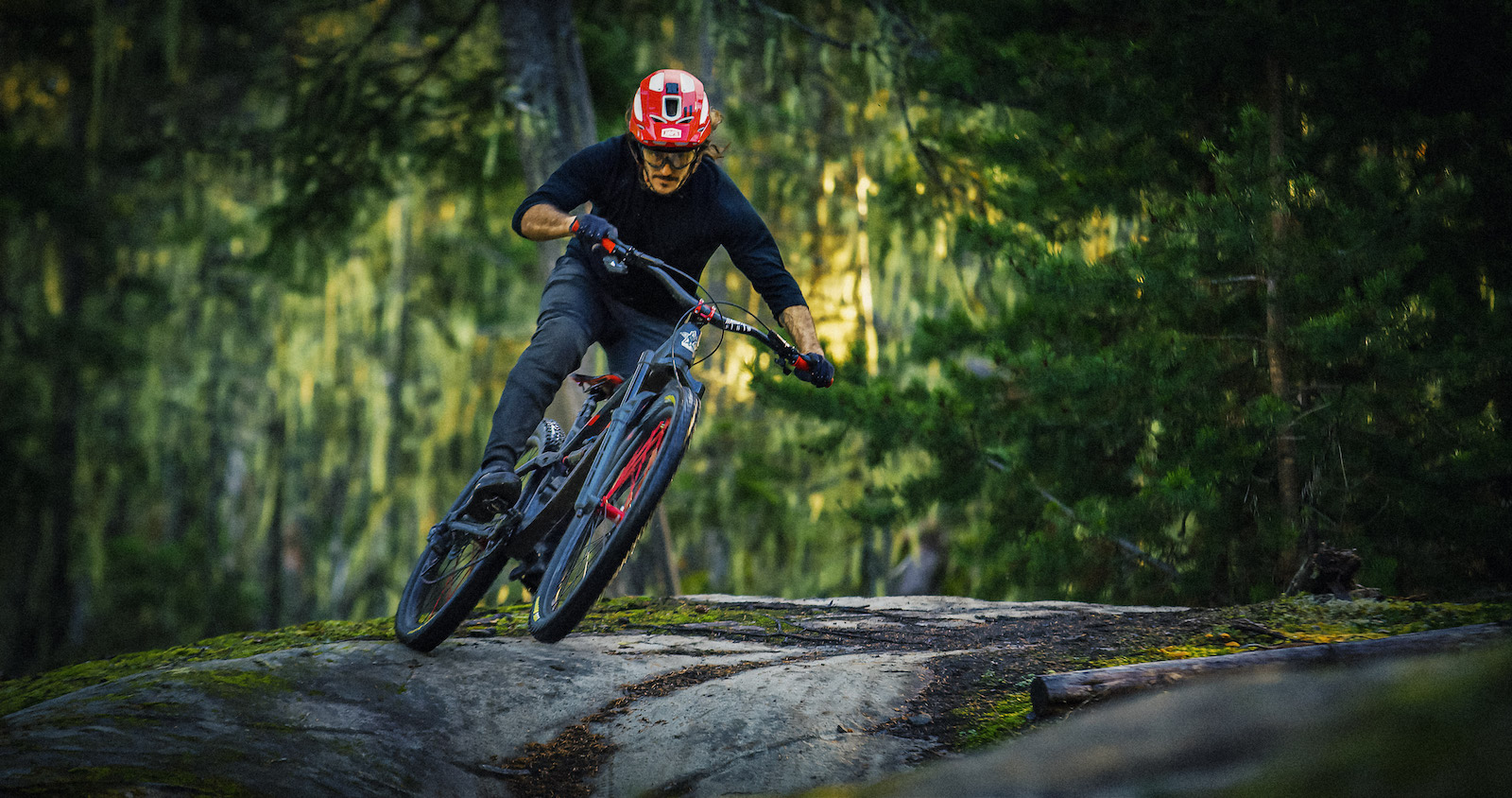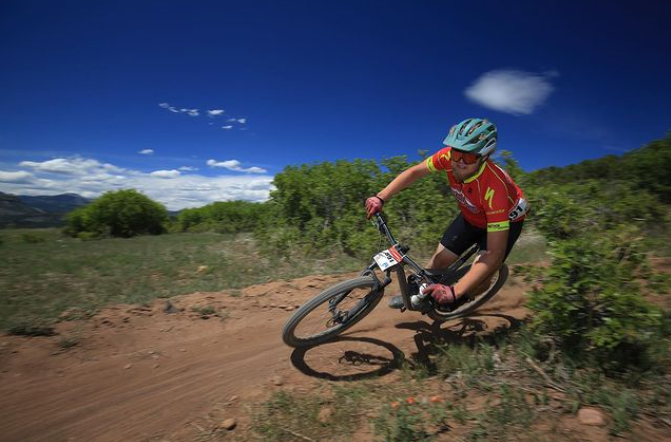Why Yoann Barelli signed with Guerilla Gravity
Barelli hopes to promote environmental sustainability by riding frames made in the U.S.

A few years ago, Yoann Barelli’s racing career was accelerating full speed ahead. One of the fastest enduro racers on the planet, Barelli twice finished on the second step of the podium at consecutive Enduro World Series rounds in 2015. Barelli was living a life that many mountain bikers can only dream of achieving.
However, being a professional athlete can bring serious impacts, not only on the body (Barelli suffered a season-ending knee injury in 2019) but also on the planet. The Frenchman, who now lives in British Columbia, Canada, recalls that during a full race season, he would take over 30 different flights, crisscrossing the globe to get to races and other obligations.
All of those travel miles are not great for the environment, but that’s the reality of being a professional athlete. Barelli began thinking about how his own impact on the environment didn’t fit in with what he appreciated about mountain biking in the first place—being in and around the natural world.
“I felt like a big unbalance with my values and the things that I was doing,” Barelli said in a virtual interview.
At the end of 2020, all of Barelli’s sponsorship contracts were up. He was previously riding for Commencal with component support from SRAM and RockShox, among other sponsors. Thinking about his environmental impact, Barelli decided it was important that his new frame sponsor manufactured its bikes in North America. He began researching and found a smaller brand from Colorado called Guerilla Gravity.
Barelli says that he initially contacted the company via an Instagram direct message, and they immediately began talking about working together.
American-made adjustable frames
In addition to being manufactured in North America, Barelli was attracted to Guerilla Gravity’s highly adjustable frame design. The brand’s bikes all use a standard front triangle, but riders can swap out the seatstays and a few components so that one bike can essentially be transformed into four different bikes with different geometries, depending on terrain and riding style. Guerilla Gravity calls this a Seatstay Tuning Kit, and its bikes also come with an adjustable headset, which allows riders to adjust their bike’s reach and wheelbase by 10mm.
This may all seem complicated, but the brand says that installing a Seatstay tuning kit should take a competent home mechanic under an hour.

Another unique feature of Guerilla Gravity bikes is their Revved Carbon Technology. Guerilla Gravity wanted to make a carbon fiber frame that was durable, cost-effective and made in America. The result was Revved, which the brand claims is 300 percent more impact-resistant than traditional carbon fiber. The manufacturing process is also quicker and more consistent, according to the brand.
Plus, the manufacturing process for this new carbon technology is environmentally friendly. The raw materials are sourced from within the U.S., which creates a shorter supply chain and thus fewer carbon emissions. The material is also economical to recycle and less sanding and finishing work is required, which minimizes air particulates.
That all sounds great, but how does the bike ride? Barelli rode timed test laps on a Guerilla Gravity and compared his times to laps on the same track with a different bike.
“I felt like I could keep pushing on the GG and keep decreasing my times, which was pretty cool,” Barelli said.
He found that the bike absorbed vibrations and impacts so well, that he could keep a fast pace down the test track while experiencing less fatigue compared to riding other bikes.
Riding toward a sustainable future
One day, Barelli was driving from Whistler to Pemberton to go for a ride. The driver of the car in front of him dropped a plastic bag out of their window onto the side of the road. The act enraged Barelli, but he realized that he wasn’t doing anything to fix the situation.
“That’s when I realized that this is what we do these days, we just point a finger,” he said. “We do nothing, we just blame.”
Barelli decided to do something. He organized clean up days along a stretch of highway and attended a cleanup day on the beach. He acknowledges however that in order for mass change to occur, governments need to act such as implementing better recycling systems.
“In the bike industry right now, everything is made overseas in Asia,” Barelli said. “That’s what we did in the past, and I think we need to bring back the industry to North America and Europe.”
Increasing local manufacturing can cut carbon emissions by shortening supply chains, and boost economies by creating jobs.
In signing with Guerilla Gravity, Barelli is making a bold move, especially considering that he could have likely made a deal with a much larger company. But this is how he wants to use his platform as a professional athlete, to inspire change and hopefully reach a broad audience of mountain bikers.
“I’m taking a risk here, but I believe in it. So I don’t care.”
Ryan Simonovich has been riding and racing for nearly a decade. He got his start as a cross-country mountain bike racer in California, where he cultivated his love for riding all types of bikes. Ryan eventually gravitated toward enduro and downhill racing but has also been found in the occasional road and cyclo-cross events. Today, he regularly rides the trails of Durango, Colorado, and is aiming to make a career out of chronicling the sport of cycling.
Rides: Santa Cruz Hightower, Specialized Tarmac SL4

